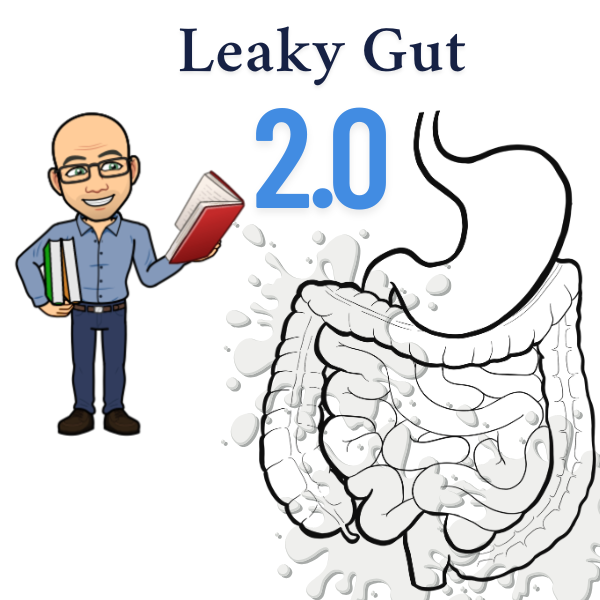We now know it is more than just Folic Acid...
Pregnancy is a crucial time for a woman's health, as well as for the development and well-being of her unborn child. Expectant mothers are often advised to pay careful attention to their nutrition during pregnancy to support optimal fetal growth and development. The nutrient most often mentioned in regard to pregnancy is folic acid but another essential nutrient that has gained significant attention in recent years is omega-3 fatty acids. In this article, we will explore the benefits of omega-3 fatty acids during pregnancy, particularly their role in promoting term birth.
Omega-3 fatty acids are a type of polyunsaturated fat that are considered essential because the body cannot produce them on its own. They can only be obtained through the diet or supplementation. Omega-3 fatty acids play a crucial role in various aspects of human health. The two most important types of omega-3 fatty acids are eicosapentaenoic acid (EPA) and docosahexaenoic acid (DHA). These fatty acids are primarily found in fatty fish, such as salmon, mackerel, and sardines, as well as in certain plant sources like flaxseeds and walnuts.
During pregnancy, omega-3 fatty acids are essential for the development of the fetal brain, eyes, and nervous system. DHA, in particular, is a major structural component of the brain and retina. It plays a vital role in the growth and maturation of neurons, as well as in the transmission of nerve signals. Adequate intake of omega-3 fatty acids during pregnancy ensures a healthy supply of these important nutrients to support optimal fetal brain development.
Omega-3 fatty acids, particularly DHA, play a critical role in the development of the fetal brain and nervous system. DHA is a major structural component of the brain, and an adequate supply during pregnancy is crucial for optimal brain growth and cognitive function. Studies have shown that mothers who consume higher amounts of omega-3 fatty acids during pregnancy have children with better cognitive abilities and reduced risk of developmental delays.
Preterm birth, defined as giving birth before 37 weeks of gestation, is a significant public health concern worldwide. It is associated with various complications and an increased risk of mortality and long-term health issues for the baby. A longer gestational period is associated with better fetal development and improved health outcomes for both the mother and baby. Omega-3 fatty acids have been linked to a longer duration of pregnancy. Research has shown that supplementation with omega-3 fatty acids in pregnant women can increase the length of gestation, reducing the risk of preterm birth and its associated complications. This benefit is a really big deal!
One key mechanism by which omega-3 fatty acids may help prevent preterm birth is through their anti-inflammatory properties. Inflammation in the uterus can trigger the onset of labor prematurely. Omega-3 fatty acids, particularly EPA and DHA, have been shown to reduce inflammation and promote a healthier uterine environment, potentially reducing the risk of preterm labor and delivery.
Omega-3 fatty acids possess anti-inflammatory properties that can benefit pregnant women. Pregnancy is a state of heightened inflammation, and excessive inflammation can contribute to complications such as preeclampsia, gestational diabetes, and preterm labor. Omega-3 fatty acids help to modulate the inflammatory response, potentially reducing the risk of these complications and promoting a healthier pregnancy.
Additionally, omega-3 fatty acids have been found to support the proper functioning of the placenta. The placenta plays a crucial role in delivering nutrients and oxygen to the developing fetus. Insufficient placental function can increase the risk of complications and preterm birth. Omega-3 fatty acids help maintain optimal placental function by supporting blood flow to the placenta and improving its efficiency.
Pregnancy can bring about hormonal changes and increased stress levels, which may contribute to mood disorders such as depression and anxiety. Omega-3 fatty acids have been shown to have positive effects on maternal mental health. They can help regulate mood and reduce the risk of developing depressive symptoms during and after pregnancy.
It is important to note that pregnant women should consult with their healthcare provider before starting any supplementation regimen. While omega-3 fatty acids are generally safe, excessive doses can have adverse effects. Additionally, pregnant women should strive for a balanced diet that includes various nutrient-rich foods, including omega-3 fatty acid sources, to obtain optimal nutrition during pregnancy.
While dietary sources are the preferred way to obtain omega-3 fatty acids, some pregnant women may find it challenging to consume enough fish or plant sources to meet their nutritional needs. In such cases, omega-3 supplements can be a convenient option. However, it is important to choose a high-quality supplement that is specifically formulated for pregnancy and provides a safe dosage of EPA and DHA.
When selecting an omega-3 supplement, pregnant women should look for products that are third-party tested to ensure purity and absence of contaminants, such as heavy metals or pollutants. It is also recommended to consult with a healthcare provider before starting any supplementation during pregnancy.
You may be wondering how much fish oil a person should take but the beauty of that is that you can check your levels with a simple, at home test kit that is reasonably priced. Once you have that perfect little baby, you can also test your breast milk to see if the small fry is getting enough omega 3’s to help support their brain and eyes. My recommendation is to test so you know, otherwise we are guessing. For those of you old enough to have grandbabies, like me, I just buy the test and send it to them to make sure my little ones are getting enough of what they need.
Omega-3 fatty acids play a crucial role in promoting healthy term birth. They contribute to optimal fetal development, particularly in the brain and nervous system. Additionally, omega-3 fatty acids may help prevent preterm birth by reducing inflammation and supporting placental function. While obtaining omega-3 fatty acids through a balanced diet is ideal, supplements can be considered when necessary. By prioritizing omega-3 fatty acids during pregnancy, women can support the healthy growth and development of their baby, setting a solid foundation for a bright and healthy future. Here is a link if you would like to take a test to measure your omega-3 fatty acids.
My staff and I would like to help you out with questions you might have regarding omega 3’s and pregnancy, so please call with questions or to schedule a consultation. Please visit my website at www.irsfeldpharmacy.com to find this and other archived articles in the blog section.
Until next time, be vigilant about your health!!












Share On: